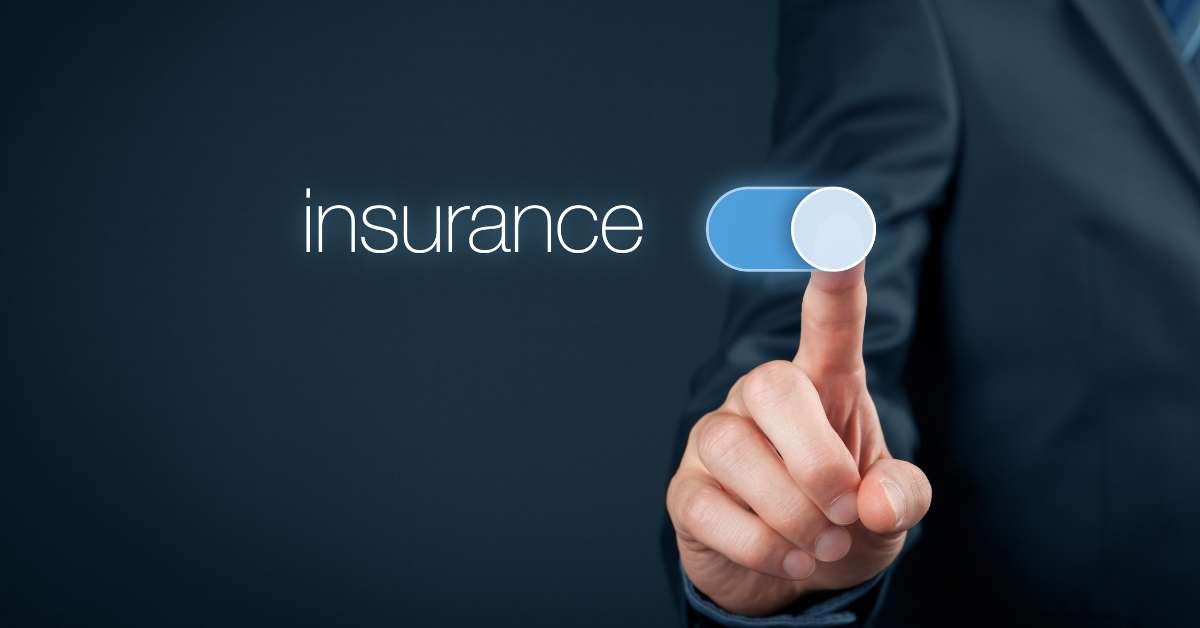Language:
What Insurance Does a Business Need?

Businesses need insurance to protect themselves against diverse liabilities, like stolen or damaged products, employee injuries, or trademark issues. Insurance protects companies from third-party claims and gives you peace of mind to focus on building the business.
With business insurance, even if the worst happens, your company is protected. You can choose from general liability insurance, product liability insurance, data breach insurance, home business insurance, and more.
Read on to understand the types of insurance that will provide the right coverage for your business and how to buy small business insurance.
What Is Business Insurance?
Business insurance protects a company from liability claims. Also known as commercial insurance, business insurance offers financial protection to businesses against all types of risks and liabilities. Insurance is essential whether you’ve got a mobile business, t-shirt business, outdoor business, small stores, or a coaching business.
Insurance can help businesses mitigate potential losses and recover disruptions in operations or other unexpected events that result in financial harm. You’ll need company and industry-specific insurance, as business insurance policies specifically address the unique risks faced by different types of businesses and industries.
Look for business insurance that includes a combination of coverages tailored to specific needs. Types of coverage and coverage amounts can vary according to the business size, industry, location, and nature of operations. Read on to find out about common types of business insurance and how they apply to your business.
Does Your Small Business Need Insurance?
While insurance isn’t required by law for most businesses, certain industries, such as medicine or law, may be legally required to hold business insurance. Business insurance is recommended for all other industries, even when not legally required.
Common Types of Small Business Insurance
Common types of small business insurance include general liability insurance, data breach insurance, commercial auto insurance, workers’ compensation insurance, and more.
General Liability Insurance
General liability insurance protects your business from claims related to bodily injury or property damage, as well as personal and advertising injury. General liability insurance covers issues that arise during operations, product deliveries, activities related to your business, or at a physical business location. This is the best general coverage insurance for small businesses, but keep in mind that it won’t cover everything.
General liability insurance costs vary according to business size and coverage amounts. While general liability insurance premiums could be as little as $23 a month, you can expect to pay about $40 to $65 per month. For example, a $2 million general business liability insurance policy costs around $64 monthly.
Professional Liability Insurance
Professional liability insurance is often known as errors and omissions insurance. It covers mistakes or claims of negligence against your company. Professional liability insurance is essential for small businesses to protect against lawsuits arising from errors or omissions. For small businesses in consulting, advisory, or specialized services, professional liability insurance is non-negotiable, as potential losses are enormous. Average professional liability insurance costs about $60 per month.
Product Liability Insurance
Product liability insurance covers physical products. It will offer protection if your business receives claims related to injuries or damages caused by the products it sells. This type of insurance also covers defective products, inadequate warnings or instructions, and all other product-related issues.
Product liability insurance may be included with general liability insurance. If not, it could cost an average of $500 to $600 annually or around $50 monthly.
Commercial Property Insurance
Commercial property insurance covers buildings and other physical assets, like inventory, equipment, or warehouse space. Commercial property insurance typically covers damage or loss due to fire, theft, vandalism, natural disasters, and damaged or stolen inventory losses. With this insurance, you’ll be able to recover or replace products in case the worst happens.
As with all other insurance coverage, costs vary based on business and coverage amount. Commercial property insurance usually costs around $1,000 and $3,000 per year for $1 million of coverage, or about $80 to $250 per month.
Workers’ Compensation Insurance
Workers’ compensation insurance provides benefits to employees who suffer work-related injuries or illnesses. This is essential for any business with employees, as it protects the company as well as its employees. Workers’ compensation insurance covers financial support and medical benefits for employees in case of workplace accidents or occupational diseases.
Small business owners with employees or LLCs with employees can get workers’ compensation insurance to protect against accidents or other claims that could lead to significant losses. The cost of worker’s compensation insurance ranges from $40 to $70 per month for small to medium-sized businesses.
Business Income Coverage
Business income coverage, sometimes called business interruption coverage or extra expense coverage, covers lost income, as the name implies. If your business closes suddenly due to supply chain issues, natural disasters, or medical issues, business income coverage applies an extra layer of protection beyond general commercial property insurance.
Business income coverage typically costs $40 to $130 per month. The industry, business, and coverage amount will affect insurance premiums.
Data Breach Insurance
Data breach insurance, sometimes called cyber liability insurance and technology errors and omissions insurance (tech E&O), protects your company in case of cyber attacks. With the increase of cyber attacks in recent years, data breach insurance can protect a company from financial losses and liabilities from a data breach.
Data breach insurance covers expenses related to investigating a data breach, notifying affected customers, and managing resulting legal claims. The average cost of data breach insurance is around $145 per month.
Commercial Auto Insurance
Commercial auto insurance covers the costs of auto accidents in company-owned cars or other vehicles used for business. Commercial auto insurance is essential for hotshot businesses, Uber businesses, and other companies with delivery vehicles or company cars, such as trucking businesses.
Commercial auto insurance can ensure you don’t have to pay for property damage and medical expenses for minor or serious accidents. Commercial auto insurance costs about $147 per month.
Commercial Umbrella Insurance
Commercial umbrella insurance gives businesses an extra layer of liability protection. This type of insurance covers costs beyond other liability coverage limits. Commercial umbrella insurance supplements other liability coverages by taking over when your other liability coverage limits have been reached. For small business owners, commercial umbrella liability insurance can offer greater peace of mind.
Average monthly costs vary by coverage amount and other insurance plans, but you can typically expect to pay around $75 per month.
Home-Based Business Insurance
Home-based business insurance protects home businesses and their owners. This added layer of protection will protect home business owners from liability. For example, if a client visits your home and slips, renters and homeowners insurance will not the injury caused to the client as it is a business liability. Average home-based business insurance costs are around $60 a month.
Employment Practices Liability Insurance
Employment practices liability insurance covers your company in case of lawsuits related to wrongful termination, sexual harassment, discrimination, invasion of privacy, breach of contract, emotional distress, and wage and hour law violations. This is a more costly type of business insurance, with average premiums around $220 per month. However, that will vary by business size and number of employees.
Business Owner’s Policy (BOP)
If you’re looking for comprehensive business insurance, consider BOP. A business owner’s policy or BOP combines various insurance coverage, such as commercial property insurance, general liability, and business income insurance, into a single policy.
BOP covers claims resulting from damage or loss related to fire, theft, or other covered disasters, as well as claims related to business operations, bodily injury, or property damage. Average BOP costs range from $50 to $60 or more, depending on company type, size, industry, and types of coverage.
Hazard Insurance
Business hazard insurance, sometimes called property insurance, is small business insurance that protects the buildings your business operates in. Hazard insurance typically also protects the equipment used to run a company. This type of insurance can cost as little as $25 per month.
How to Buy Small Business Insurance in 5 Steps?
If you’re ready to purchase small business insurance, it’s important to assess the company’s needs to find the right fit. Here are the steps that you should follow:
1. Assess Your Business Needs
Examine business needs, industry, inventory amount, and other business specifics to determine specific needs. Take into account the answer to the following questions:
- Do you have multiple locations?
- Do you own company vehicles?
- Are there employees?
- Do you have computers or store customer data on a database?
- Do you offer services?
Taken together, you can list the types of coverage required, and start estimating coverage amounts.
2. Shop Around for Insurance Providers
Once you understand company needs and the insurance required, shop around for the best policies. Be sure to get at least three quotes. Then, compare coverage and costs to find the best insurance provider for your needs.
3. Understand Your Coverage
It’s essential to read the fine print! Understand coverage limits, exceptions, and other plan details to ensure that the coverage meets company needs.
4. Consider Bundling Policies
Bundled policies can lead to cost savings and better overall coverage. Consider BOP insurance, general liability insurance with commercial umbrella insurance, or other bundled plans to get the most comprehensive coverage available.
5. Review Your Policy Regularly
Each year, or whenever there are significant changes in business activities, inventory, or acquisition, review policies to ensure coverage. Before each renewable period, review the contract and ensure adequate coverage.
Protecting Your Business
Small business owners have a lot to do. Worrying about liability claims, faulty products, or natural disasters shouldn’t be on your plate. Protect your company from harm with a comprehensive insurance policy, and opt for Doola bookkeeping services to get the best accounting software that allows you to manage business accounting while focusing on what really matters in your business.
FAQs
Where can you buy business insurance?
You can buy business insurance from major insurance providers both locally and nationwide.
Will your policy cover damages caused by natural disasters?
Whether your policy will cover damages from natural disasters depends on the policy type and coverage details. It’s important to read the fine print and understand your coverage.
How soon will your policy become effective?
Your policy will become effective depending on the type of policy and its terms. Some policies are effective immediately, while others take 72 hours to come into effect. Check the effective date and any limitations on your specific plan.
How long does it take to file a claim?
Filing a claim could be done within a few minutes. However, how long it takes to settle a claim varies by provider, insurance type, and even the state in which your business operates. Certain states, such as California, have limitations on how long insurance companies can take to settle claims.
What happens if a business doesn’t have insurance?
If a business doesn’t have insurance, it will be personally liable for any claims brought to it. The business also won’t be covered in case of lost or damaged inventory, natural disasters, supply chain issues, or other unexpected events.
Keep reading
Start your dream business and keep it 100% compliant
Turn your dream idea into your dream business.















